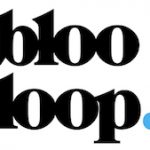Related: 30 years in Themed Entertainment / The Dark Side of Themed Entertainment / UK Theme Parks Going Green / Themed Entertainment Association Announces 15th Annual Thea Awards Recipients / Open Frontiers celebrates a woodland triumph for Time Pursuit
By Rachel Read
At its peak in 2002, themed entertainment company Farmer Studios had a turnover of £2m and more than 40 staff on the payroll, but instead of enjoying the creative freedom and escape from the corporate grind that had inspired him to form the business, Nick Farmer found himself caught in a quagmire of accounts and management issues. He had left his successful marketing career at Palitoy in 1976, following his passion for creativity and the themed entertainment and attractions industry. The business had grown steadily driven by ad hoc capital investment or recruitment, filling needs and skills gaps highlighted by each new contract, rather than being driven by a cohesive long-term strategy.
“It was a classic scenario” says Farmer, “we just grew and grew and grew. ‘I just need that machine or those people and everything will be fine.’ But then the next contract comes along, and you need something else. The bigger you get, the more revenue you need and it just gets harder and harder to manage the peaks and troughs.” Outwardly successful, Farmer Studios was able to bid for larger and larger contracts and gained a reputation for creativity, quality and good business practice. However, as the business grew, Farmer struggled to make a profit after paying his ever increasing fixed overheads.
Having been trained as a chartered accountant, Farmer was well placed to understand the importance of the cash cycle and to be able to manage the financial side of the business, but he was unprepared for the extent to which his time was taken up with managing staff and cash flows rather than doing the creative work, the love of which had driven him to set up in business in the first place. The unforgiving seasonality of the industry also had its pitfalls. “It was easy to make a profit in the winter, ” says Farmer, “but in the summer there were three months when staff were simply on hold, waiting for next season’s orders and any profit quickly evaporated.”
He is remarkably candid and philosophical about the end of Farmer Studios. “We ran out of money in 2003. None of us could believe it. I don’t blame the banks for not carrying on, we just fell into a hole.” The end of support from his bank was a tipping point at which Farmer decided that he could no longer continue to pour his own cash in to support the business through another trough. This financial crisis, coupled with the realization that he was unfulfilled spending his time as a “personnel and cash flow manager, ” led Farmer to make the tremendously difficult decision to close the business. He describes this period as a “meltdown, ” saying, “It felt like there had been a death in the family. I was unprepared for the feeling of desolation and fear of not knowing what to do next. I was considering whether I would be able to get a job. It was difficult to find someone I could talk to.”
The emotional reaction of entrepreneurs whose businesses fail is likened to bereavement by Professor Dean A Shepherd, Professor of Entrepreneurship at the Kelley School of Business, Indiana University. Shepherd has focused his research on how entrepreneurs can learn from experi mentation and failure, drawing on the failure of his own father’s business and the emotional aftershocks within his family. In his latest book “From Lemons to Lemonade: Squeeze Every Last Drop of Success Out of Your Mistakes” (2009 Wharton School Publishing), Professor Shepherd discusses the passion, dedication and emotional investment of the entrepreneur as a double-edged sword: necessary to achieve potential success, but painfully sharp when there is failure. The enterprise itself can be vital to the individual’s feeling of self-worth and identity.
mentation and failure, drawing on the failure of his own father’s business and the emotional aftershocks within his family. In his latest book “From Lemons to Lemonade: Squeeze Every Last Drop of Success Out of Your Mistakes” (2009 Wharton School Publishing), Professor Shepherd discusses the passion, dedication and emotional investment of the entrepreneur as a double-edged sword: necessary to achieve potential success, but painfully sharp when there is failure. The enterprise itself can be vital to the individual’s feeling of self-worth and identity.
Do what you’re best at
Shepherd suggests that a period of grieving is healthy and necessary, however much of his book is dedicated to how best to speed up the grieving process and come away from the experience of failure having learned something useful for the future. He suggests that the first step (similar to grieving for the loss of a loved one) is important to acknowledge one’s emotional response to the loss. Second is “self empathy” – ie, entrepreneurs see opportunities in uncertain environments, these environments are by definition risky, there is always a chance of failure and therefore it is important not to be too hard on yourself if you do fail.
After his own period of grieving, reflection and considering his options, a turning point came for Farmer with advice from Liz Terry at Leisure Media, who told him to “get a grip and do what you’re best at.” Farmer then decided to start up on his own as a freelancer and look for work, and launched Farmer Attraction Development. Initially worried that potential clients would not consider him for work after the collapse of his former business, Farmer was pleasantly surprised that this did not seem to be a problem. “It seemed extraordinary, but they were not at all interested in why my business had failed; I think that this industry is somewhat used to companies failing. All they wanted was for me to explain what I could do for them.”
With a longstanding reputation for excellent work and trading fairly, and consistent networking through trade shows and associations Farmer was able to gradually build up his assignments. As he started to take on more contracts he then began to look for other people to work with and found that many of the senior people formerly at Farmer Studios had also taken the decision to continue in the industry as freelancers. Farmer now regularly collaborates with ten of his former employees as project requirements dictate. The continuation of these relationships is a testament to his efforts to be as fair and open with staff as possible when closing Farmer Studios.
Farmer talks with enthusiasm of the advantages of being a one-person company. He can be selective about clients, as he is no longer driven by the need to generate high revenues to finance his payroll. “I can be more choosy in terms of jobs, ” he explains. “I can do what I’m good at, developing attractions with concepts and ideas. I don’t need to spend all my time worrying about staff problems or the bank. Whereas before I needed a contract for £1m to cover my fixed overheads now I can get excited about contracts for £25k.”
Another positive aspect of his new business model is that Farmer can be very flexible about the way that he collaborates with other people or organizations, or works on his own to best suit the client. Farmer Attraction Development was instrumental in establishing the creative development of BeWILDerwood (above right), recipient of a Thea Award for Outstanding Achievement in 2009, by bringing in freelance illustrator Steve Pearce. Simon Egan, co-developer of BeWILDerwood, describes Farmer’s contribution as “inhabiting the woods and sprinkling pixie dust.”
Advantages flow to clients as well…
Farmer recently consulted for Paris design agency Harmatan on the “Magma Explorer” ride at volcano themed attraction Vulcania in the Auvergne region of Southern France. Currently he is involved in developing several projects for Scandinavian parks, providing design consultancy and project delivery for rides and other themed experiences. For light relief, he develops new (simulated) tortures and methods of execution for Merlin Entertainments’ Dungeon attractions.
All in all, there is a greater feeling of job satisfaction by spending more time doing what he actually wanted to when he set up alone over thirty years ago, but Farmer pointed  out that the advantages flow to his clients as well. “I’m able to give them more personal attention, ” he explains. “Before, I was always rushing back to the office, but now I have more time to concentrate on the job and be creative.” He finds that his bids can be more competitively priced for the customer and more profitable for the contractors with the reduction in fixed overheads and the more efficient utilization of his time and the time of those working with him.
out that the advantages flow to his clients as well. “I’m able to give them more personal attention, ” he explains. “Before, I was always rushing back to the office, but now I have more time to concentrate on the job and be creative.” He finds that his bids can be more competitively priced for the customer and more profitable for the contractors with the reduction in fixed overheads and the more efficient utilization of his time and the time of those working with him.
Reflecting on the lessons learned from his experience, Farmer was keen to stress the importance of networking in helping him regaining his confidence, direction and building up his business again. He has been a member of the TEA since the formation of the European Division in 1998 and has served terms as European President and International President. When the situation warrants it, he advises fellow TEA members who run into similar business troubles to those he experienced.
The secret of future success for serial entrepreneurs, according to Prof. Shepherd, is in learning from the past – recognizing the areas where you had control and could have done something differently. A defensive stance, blaming outside factors is effective in protecting one’s ego in the short term; however, it does not help one formulate useful strategies for the future. Turn to your social network for support, advises Shepherd – for sympathy, distraction or brutal honesty, as needed.
Post-business failure grief needs a confidential and compassionate but objective listener, says Farmer. “It can be very difficult to find someone to talk to: lawyers and accountants usually approach the closure of a company as detached professionals; spouses are often too emotionally involved and are thinking what the end of the business will mean to family life, and in confiding to colleagues, there is risk that your difficulties may become public before you can finish the obligations on your last contracts.” Farmer feels he can offer “optimism, hope and direction” and the benefit of his own hard-won experience on the process of winding up a business. “If you have had a good reputation for the quality of your work and have traded ethically then customers will still want to buy from you. The world does not have to come to an end. Life does go on, and in fact it can get better.”
This article first appeared in the 2010 TEA Annual & Directory, published by the Themed Entertainment Association (TEA) . Reprinted with kind permission.









